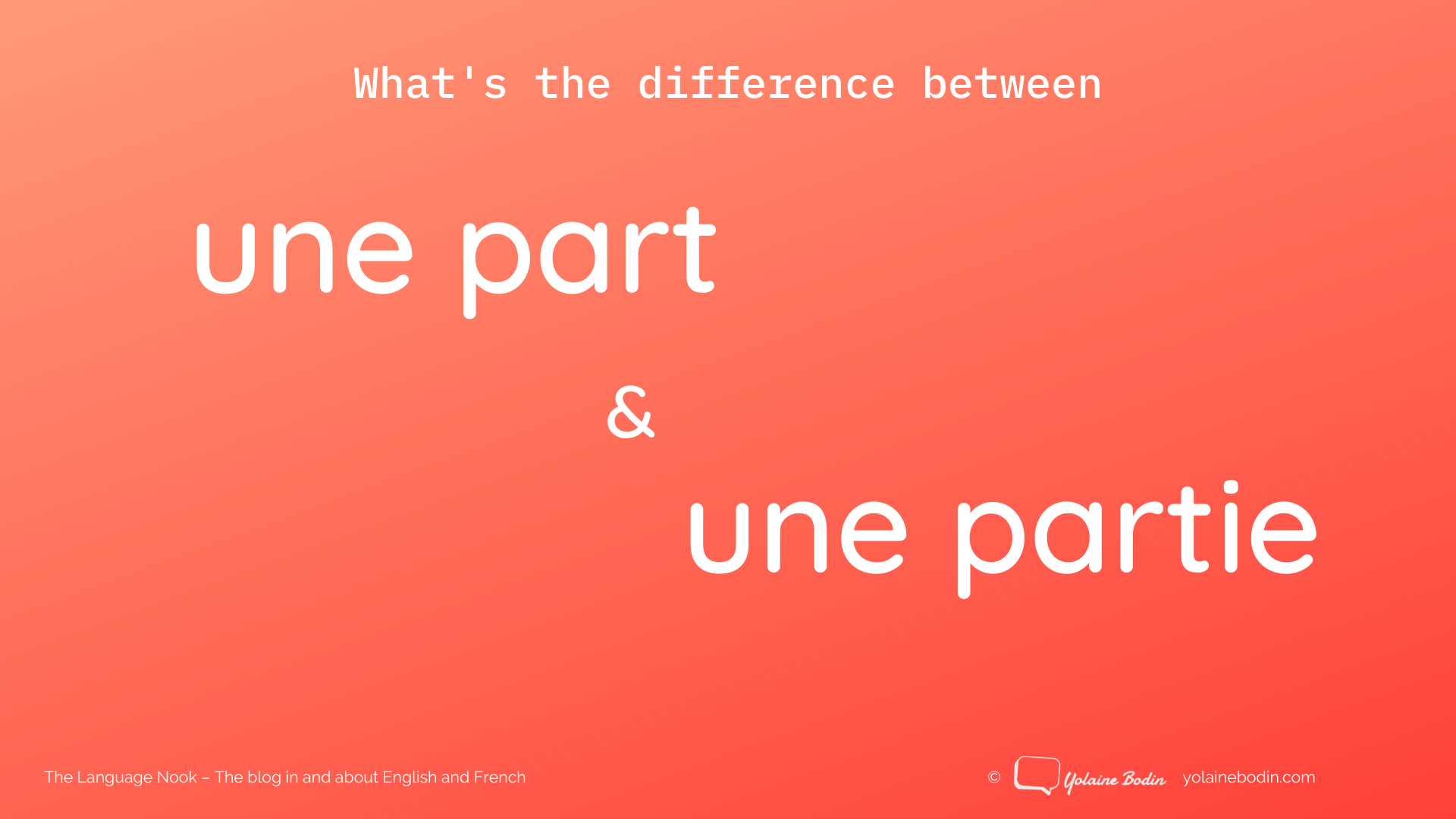In one of my French conversation classes, I was recently asked to explain the difference between the words part and partie, how to choose between both words when we want to talk about a part or a piece of something.
Both words part and partie can be used in many different contexts and you will find examples of sentences using partie and part below. However, let’s see when to use each of these words first.
First of all, bear in mind that the word part is not connected to the verb partir (go away, leave) but derives from the verb partager (i.e. to share).
As a consequence, the word part will be used in French to refer to something that is shared and given out or distributed. On the other hand, partie refers to a section or a portion of a whole.
The main difference between part and partie really lies in this:
You use une part when the idea is to share or distribute
You use une partie when you want to name a portion of a whole.
Let’s look at an example to highlight the difference. You have guests for dinner. You want to cook leeks. For your recipe, you will use the white part (la partie blanche) of the leeks. Once your dish is ready, you will share (partager) among your guests, Each guest will get a portion: chacun reçoit sa part.
Of course, there are a number of possible translations for both words part and partie, as well as some set phrases. Here are a few examples:
Partie :
- Les parties du corps → the parts of the body
- Une partie d’une histoire, d’un film ou d’un livre → a part of a story, a film or a book
- En partie → partly
- En grande partie → for the most part
- Faire partie de quelque chose → to be part of, to belong to something
- La partie visible de l’iceberg → the tip of the iceberg
- Une partie de cartes → a game of cards
- Une partie de tennis → a tennis game or a match
Part :
- À part ça → apart from that
- D’autre part → furthermore
- De part et d’autre → on both sides
- De toute(s) part(s) → from all sides
- Pour ma part (à mon avis) → personally
- De la part de quelqu’un → on behalf of, from someone
- Nulle part → nowhere
- Avoir des parts (dans une entreprise) → to have shares (in a company)
There you are! Now you know how to choose between the French nouns part and partie. Congratulations! 🙂





Merci beaucoup pour cette explication ! Je viens de découvrir votre merveilleux site et j’ai hâte d’explorer le reste du contenu.
Concernant le sujet ci-dessus, je me demandais si vous pouviez clarifier cette traduction pour moi:
Lequel est correct dans ce cas ?
1.) Une partie importante de la vie est le travail.
2.) Une partie importante de la vie est le travail.
Je penserais que la première phrase est juste mais j’ai vu la deuxième phrase utilisée sur un autre site français.
Bonjour Donna et bienvenue dans le Coin Langues ! Vos deux propositions sont identiques, mais je suppose que dans l’une des deux vous vouliez utiliser le mot “part”. Je ne suis pas sûre de la formule que vous pensez correcte, mais ce n’est pas grave car cela ne m’empêche pas de vous donner la réponse. Je dirais “une partie importante” parce qu’il s’agit dans cette phrase d’une “portion” du temps de notre vie passée à travailler. De la même manière, on parle d’une partie de la matinée, c’est-à-dire la portion de temps à l’intérieur de la matinée. Par exemple, on dirait : “J’ai suivi un cours de français dans la deuxième partie de la matinée.”
I hope this helps! 🙂